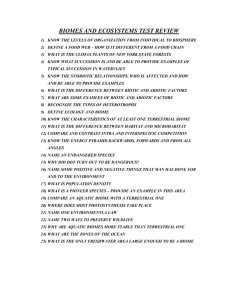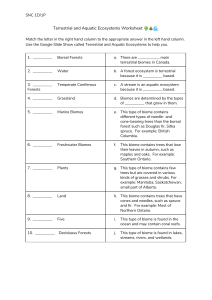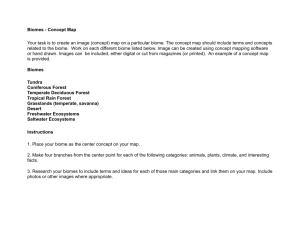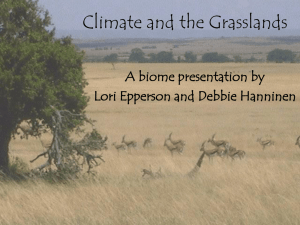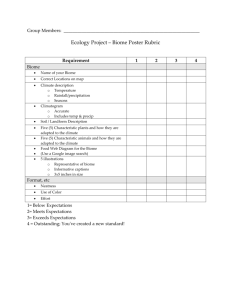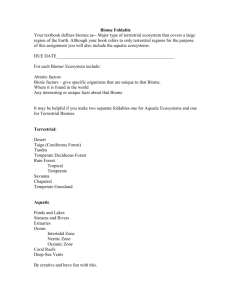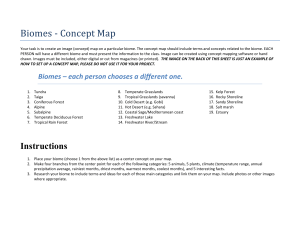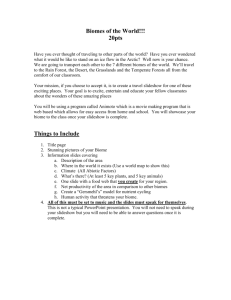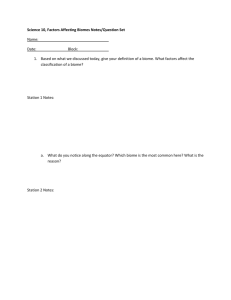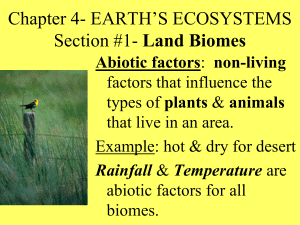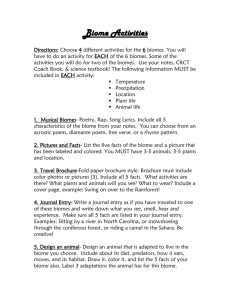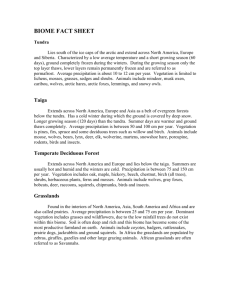Biome Study Guide: Terrestrial & Aquatic Ecosystems
advertisement
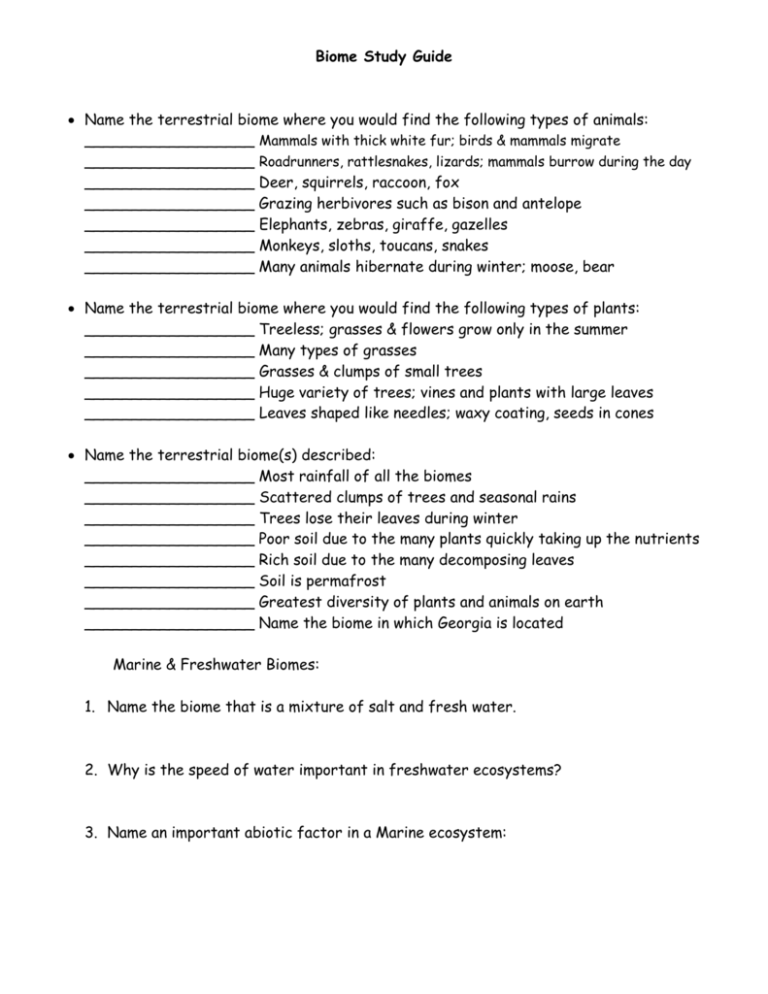
Biome Study Guide Name the terrestrial biome where you would find the following types of animals: __________________ Mammals with thick white fur; birds & mammals migrate __________________ Roadrunners, rattlesnakes, lizards; mammals burrow during the day __________________ Deer, squirrels, raccoon, fox __________________ Grazing herbivores such as bison and antelope __________________ Elephants, zebras, giraffe, gazelles __________________ Monkeys, sloths, toucans, snakes __________________ Many animals hibernate during winter; moose, bear Name the terrestrial biome where you would find the following types of plants: __________________ Treeless; grasses & flowers grow only in the summer __________________ Many types of grasses __________________ Grasses & clumps of small trees __________________ Huge variety of trees; vines and plants with large leaves __________________ Leaves shaped like needles; waxy coating, seeds in cones Name the terrestrial biome(s) described: __________________ Most rainfall of all the biomes __________________ Scattered clumps of trees and seasonal rains __________________ Trees lose their leaves during winter __________________ Poor soil due to the many plants quickly taking up the nutrients __________________ Rich soil due to the many decomposing leaves __________________ Soil is permafrost __________________ Greatest diversity of plants and animals on earth __________________ Name the biome in which Georgia is located Marine & Freshwater Biomes: 1. Name the biome that is a mixture of salt and fresh water. 2. Why is the speed of water important in freshwater ecosystems? 3. Name an important abiotic factor in a Marine ecosystem: Be able to read a Climatogram: 1. Which seasons are the rainiest? Spring, Summer, Winter or Fall? 2. Which month has the least amount of rain? ___________________ 3. Which months are the warmest? _______________________________________________ 4. How many millimeters of rain are received in July? _______________
